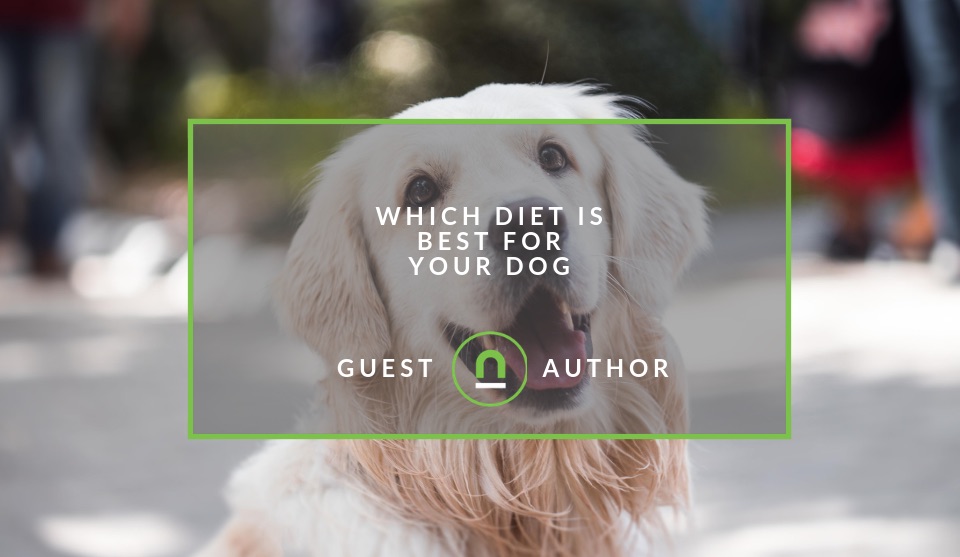Recent posts

Athletes
Peptide Use for Muay Thai Training
23 February 2026

Money Talks
A Guide To Mobile Trading Apps for South Africans
19 February 2026

Press Releases
Rehab Your Knee: A Free, Evidence-Based Guide to Smarter Recovery
12 February 2026

Money Talks
XRP vs. Stablecoins: Which Is Better for Cross-Border Payments in 2026?
28 January 2026
Popular posts
Extravaganza
Trending Music Hashtags To Get Your Posts Noticed
24 August 2018
Geek Chic
How To Fix iPhone/iPad Only Charging In Certain Positions
05 July 2020
Extravaganza
Trending Wedding Hashtags To Get Your Posts Noticed
18 September 2018
Money Talks
How To Find Coupons & Vouchers Online In South Africa
28 March 2019
Which Diet Is Best For Your Dog
14 September 2019 | 0 comments | Posted by Waqas Ahmad in Fur, Fins & Feathers
When looking for the best dog food for your dog, there are many factors to consider. A dog diet is formulated for size, age, breed, energy level, medical needs, and more. It’s hard to know which dog food is the best.
- Should you buy your dog food from a store or make it yourself?
- Should it be wet or dry? Kibble or human foods?
- Raw or cooked?
- What kind of diet should your pup follow?
It is always essential to consult a trusted veterinarian or nutritionist when choosing the best dog food for your dog.
Here are some of the most popular dog diets that might be best for your pooch.
Kibble and other store-bought food
When buying dog food from the store, it’s essential to first check the label for ingredients. The ingredients will be listed in the order of the amount from highest to lowest.
Ideally, you’ll want the meat to be listed first, such as chicken, lamb, or beef. Eggs may also be high on the list. Grains such as wheat and flour should be low on the list. Check the bag to make sure the food is formulated for your dog’s age, breed, and weight, and ask your veterinarian about appropriate serving sizes. Unfortunately, reading the label may not be enough to determine if a dog food is healthy.
Many manufacturers know how to manipulate labels to make food sound healthier and appealing. They don’t, for instance, have a good way of indicating whether the food has more meat protein than grain protein. Also, terms like “human-grade” and “70% organic” don’t have legal definitions. They’re meaningless.
One of the benefits of store-bought food is that it is usually affordable, though several homemade dog food recipes can be made just as cheaply as store-bought food. Also, because you don’t know the quantities of the ingredients or where they are sourced from, it’s hard to tell what’s in your dog’s food. Pet food recalls happen all the time, and dogs do get sick when ingredients are contaminated.
If you must feed your dog store-bought food, consult your veterinarian and make sure it is the best quality you can find. Keep in mind that there is no reason you can’t add certain healthy human foods to your dog’s store-bought food, as well. These can provide a much-needed health boost.
Home-cooked meals
There are tons of recipes for home-cooked dog food online, but you should ask your veterinarian before sharing human meals with your dog. Do your research and determine which foods are healthy and which are toxic. Avoid artificial flavours, preservatives, additives, and anything that isn’t whole, natural, and organic.
Wash all foods, too, as they may be treated with pesticides or herbicides. It’s best to get food from a place that you trust not to manage food with chemicals, as these can be toxic to dogs.
Ask your veterinarian or nutritionist about appropriate amounts of foods to serve your dog. Some healthy foods are not right in large quantities. Blueberries, for example, are great for dogs and full of vitamins, nutrients, and antioxidants. Too many of them, however, can cause a tummy ache and diarrhoea.
It is important to note that some veterinarians believe that cooking food destroys some of the valuable nutrients that the ingredients contain, even though it kills some of the potentially harmful bacteria. Again, do your research. It is up to you to make appropriate decisions about what your dog eats based on your knowledge and the knowledge of experts you trust.
Raw food
Raw food diets are a relatively new trend. With these diets, human foods are not cooked before being served to dogs. Many owners and vets claim that this has tremendous health benefits for dogs, including improving the health of their coats, their breath, and their digestion. Others claim that serving raw food can cause infections from things like E. coli and salmonella.
Dogs are not likely to suffer from these infections unless their immune systems are already compromised, but it is something to consider, especially if your dog is sick or has a chronic medical condition. If you are going to give your dog raw food, it is crucial that you know how to source ingredients, handle food properly, and make sure you keep everything as sanitary as possible.
Some store-bought dog food manufacturers are jumping on the raw dog food trend and selling pre-made raw dog foods. You should research these thoroughly before purchasing. Several of the same problems exist with these as with other store-bought foods, including you not fully knowing what ingredients go into the food or how much.
Special medical diets
Some dogs have special medical needs that factor into which diets are best for them. Diabetic dogs, for example, should have a high fibre, low-fat diet. Dogs with congestive heart failure should have restricted sodium, added taurine, and more amino acids.
Omega-3 fatty acids might be necessary for dogs with skin conditions. It may be recommended for dogs with cancer to go on a ketogenic diet. If your dog has a medical condition, follow your veterinarian’s instructions for nutrition carefully. You’ll need to pay close attention to ingredients, serving sizes, and keeping your dog at the appropriate weight.
There are no miracle cures, but the right food can improve health, keep medical conditions under control, and strengthen the immune system. What is the best dog food for your pup? What diet would you recommend to other dog owners? Let us know in the comments below!
Tell us your story
Would you like to write for nichemarket just like Waqas has? Find out how to submit a guest post and when you're ready, you can contact us.
Are you looking to promote your business?
South African pet-related businesses can create your free business listing on nichemarket. The more information you provide about your business, the easier it will be for your customers to find you online.
Registering with nichemarket is easy; all you will need to do is head over to our sign up form and follow the instructions. If you require a more detailed guide on how to create your profile or your listing, then we highly recommend you check out the following articles.
Recommended reading
If you enjoyed this post and have time to spare why not check out these related posts and dive deeper down the rabbit hole that is pet ownership.
- Pet-Friendly Campsites In The Western Cape
- Where To Get Pet Insurance In South Africa
- Do's & Don'ts For Keeping Your Pet Safe During Guy Fawkes
Tags: Pet Nutrition, Guest Post
You might also like
Africaworks Accelerates The Rollout Of Real Estate Investment Platform
20 January 2026
Posted by Nicolas Teisserenc in Press Releases
AWIP accelerates the rollout of its urban real estate investment platform in West Africa, raising €4m and fully deploying it into two off-market acqu...
Read morePeptide Use for Muay Thai Training
23 February 2026
Posted by Che Kohler in Athletes
As a Muay Thai fighter, you will have your fair share of knocks and injuries, which means a robust recovery protocol will make all the difference in ...
Read more{{comment.sUserName}}
{{comment.iDayLastEdit}} day ago
{{comment.iDayLastEdit}} days ago
 {{blogcategory.sCategoryName}}
{{blogcategory.sCategoryName}}

